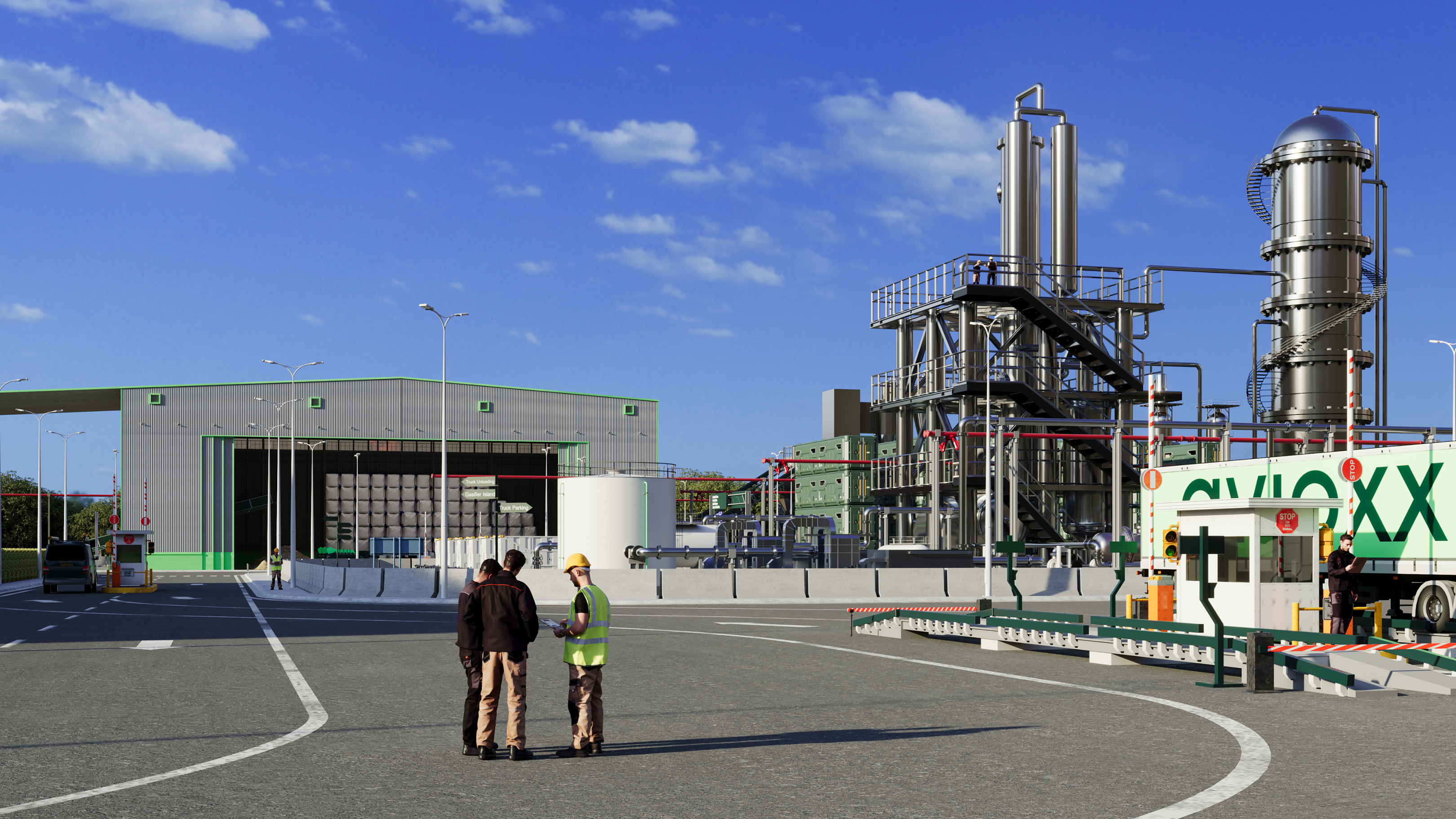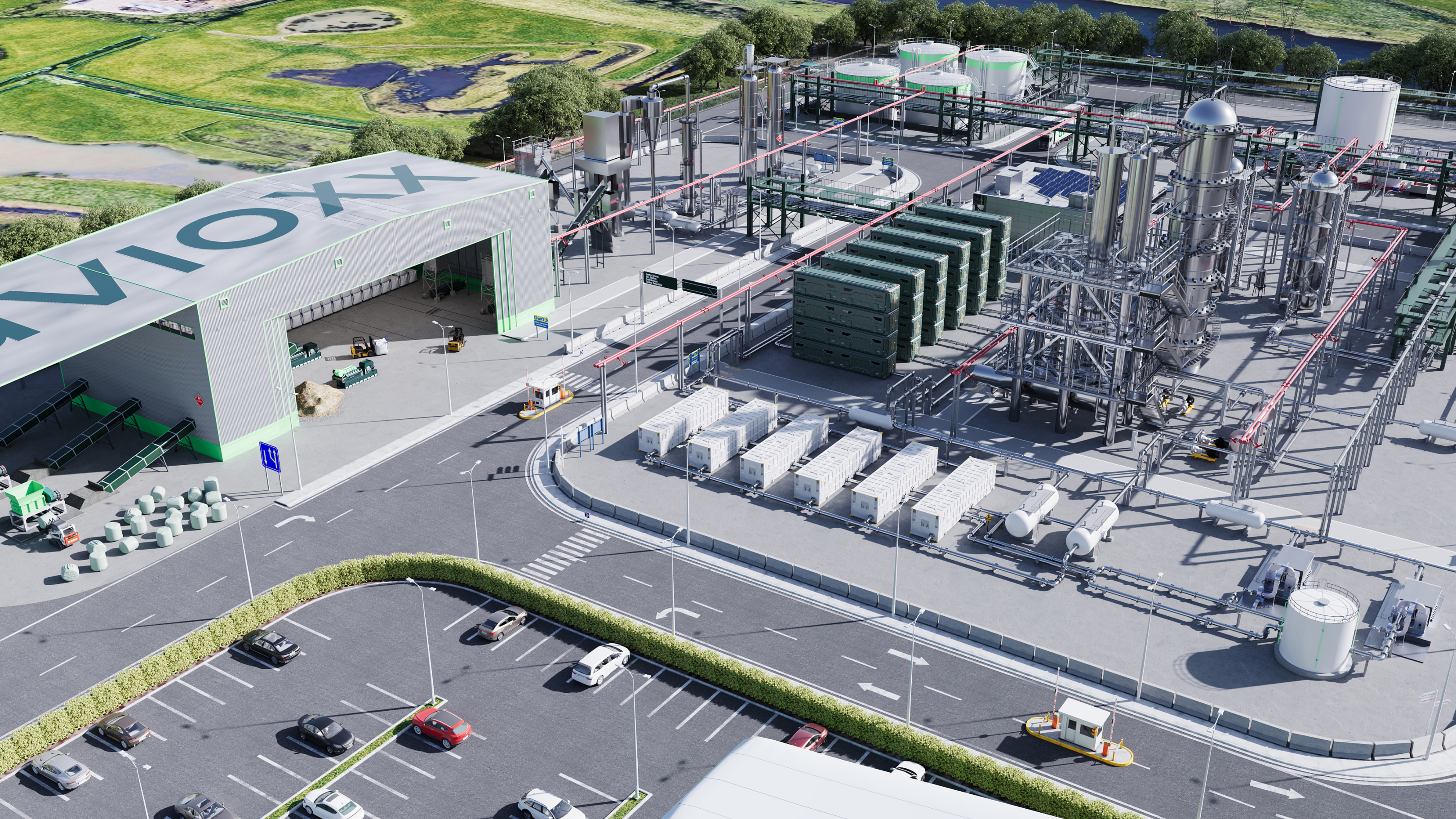
Rapid scale-up approach to transform the aviation industry
Scale up annual production volume
Potential UK CO2 reduction
Production capacity growth
Maximum UK production capacity

Avioxx is building a state-of-the-art sustainable aviation fuel (SAF) refinery. Construction will start in 2025 and the plant will be operational by 2026.
- 5,000 tonnes of sustainable fuel per year
- From 38,000 tonnes of waste
- To increase to 32,000 tonnes of SAF per year
- Automation and machine learning at the core
- First manufacturing plant of its kind globally
- Accelerating the UK's transition to net zero
- 10 plants by 2030 producing 312,500 T/y
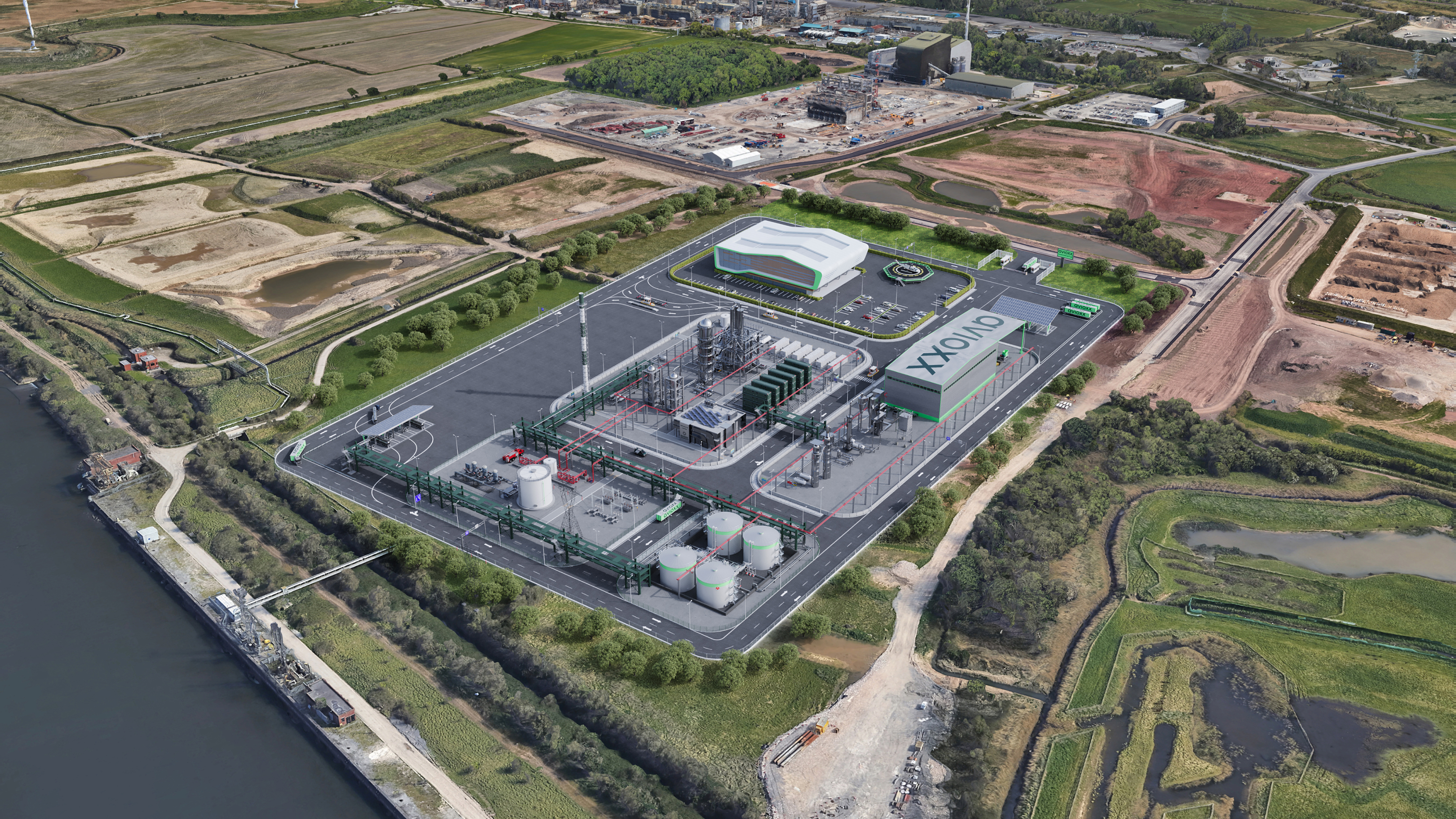
Novel introduction of solid oxide fuel cells and unique configuration of reactors for economic production of sustainable fuel.
The plant design leverages new Solid Oxide Fuel Cell (SOFC) technology to dramatically increase the production efficiency of the fuel. SOFCs produce electricity from waste via gasification and reduces the need for external electricity, thus reducing the cost of production. Hydrogen produced from electrolysis allows the input gasses for the Fischer-Tropsch reactors to be the correct ratios for the gas to liquid reaction on the back end.
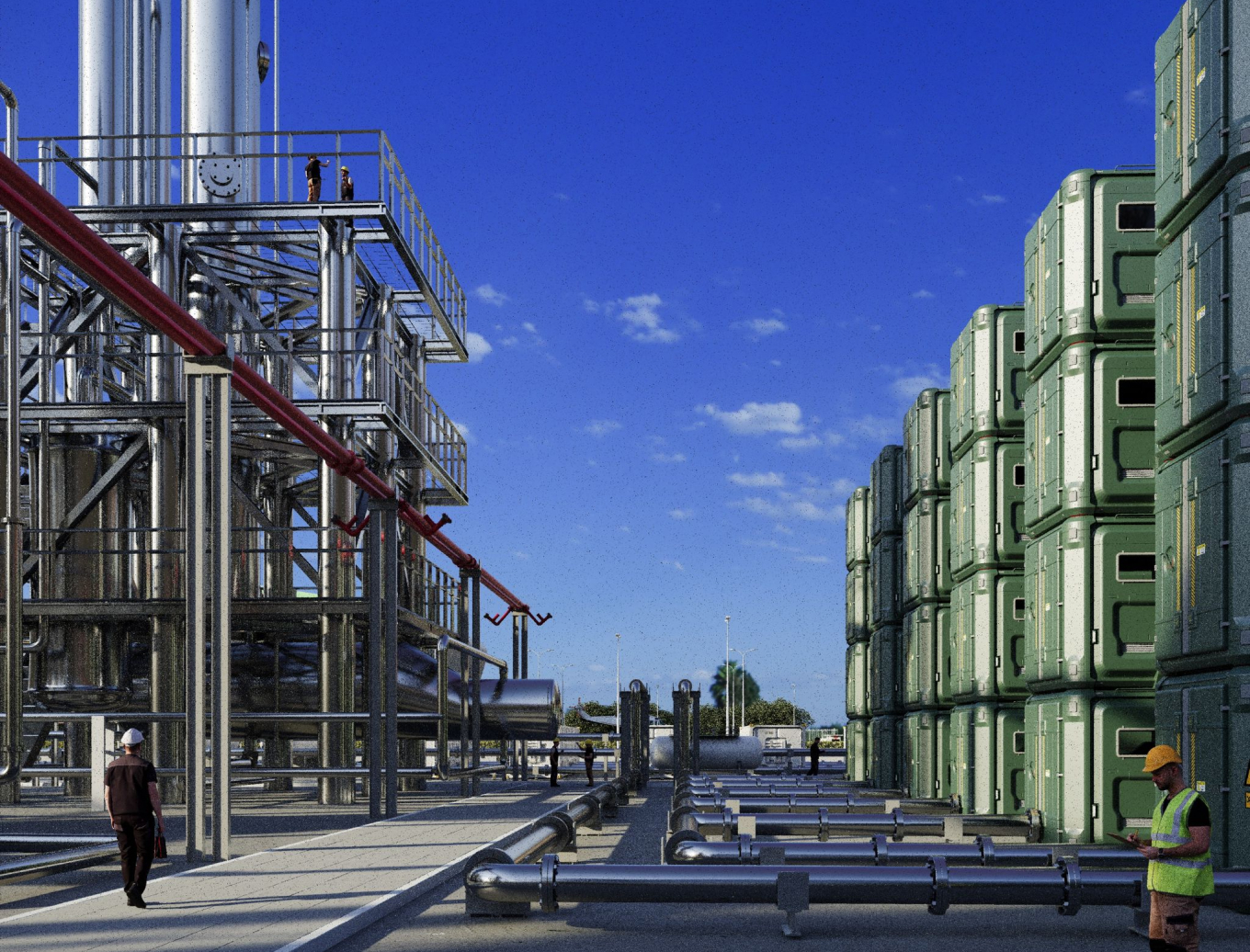
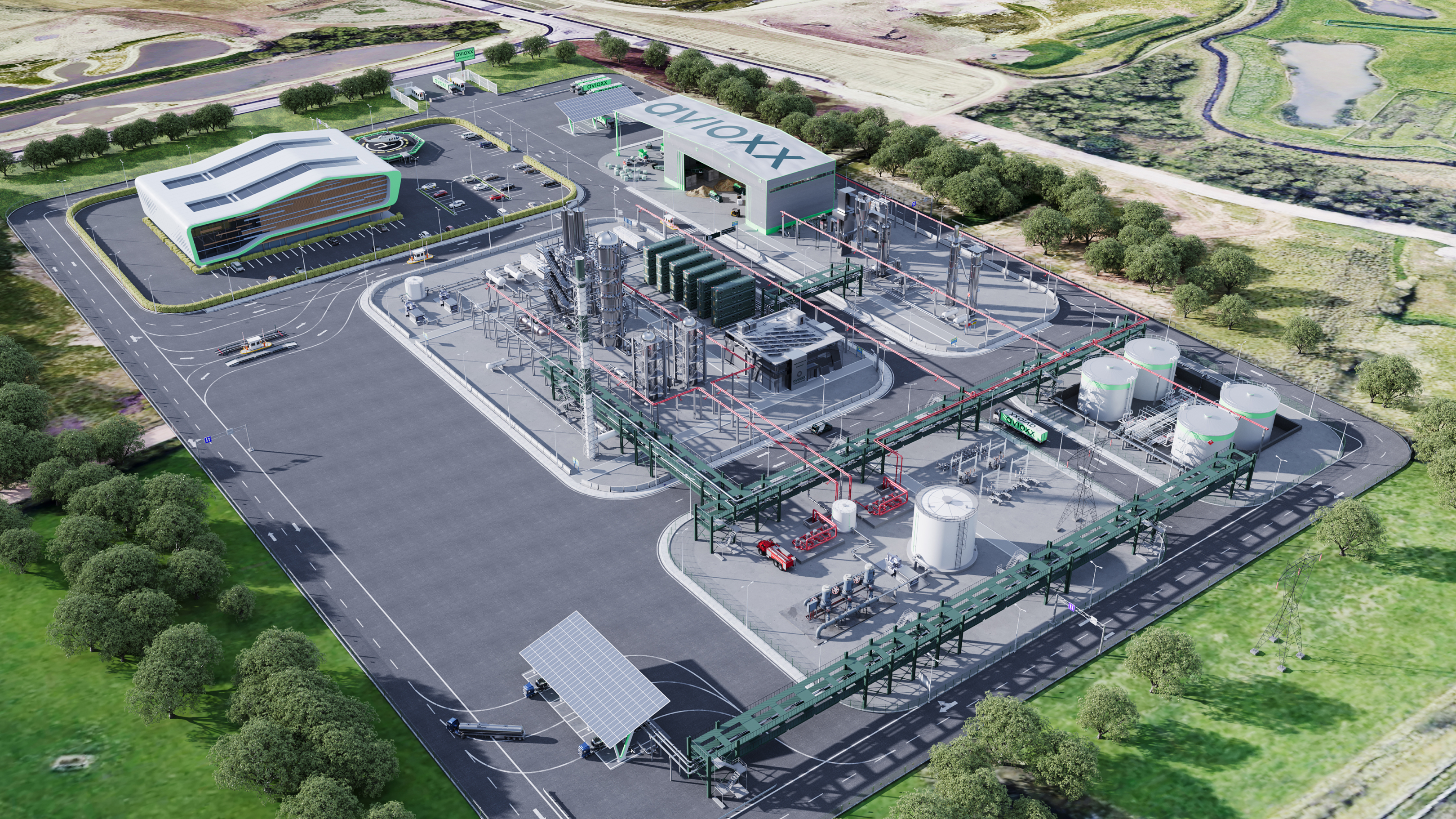

Leveraging cutting edge technology and advanced engineering design methodologies.
Innovation is key to addressing the huge challenge of manufacturing sustainable fuel at scale and cost effectively. Using an agile approach to the design and delivery allows for an iterative approach to the delivery of the plant. Development of a small 5,000 tonne per year plant initially allows the Avioxx to solve many operational hurdles and also de-risk the capital requirement for a 32,000 tonne-per-year plant.
Comprehensive modelling and simulation of the plant allows engineers to forecast efficiency with a high degree of confidence and ensure that processes are fit for purpose and target production volumes are achievable. The iterative approach provides a framework for solving complex engineering challenges quickly with lower risk than a more traditional approach.
